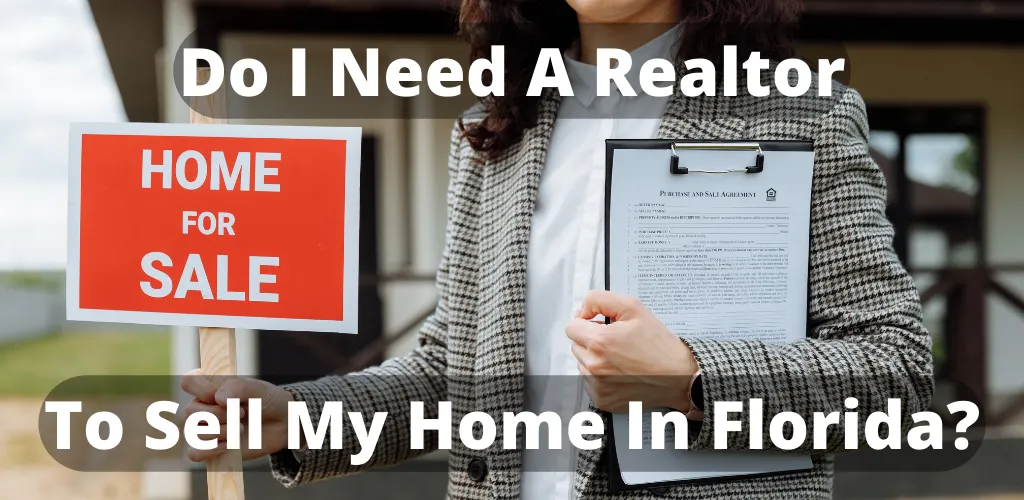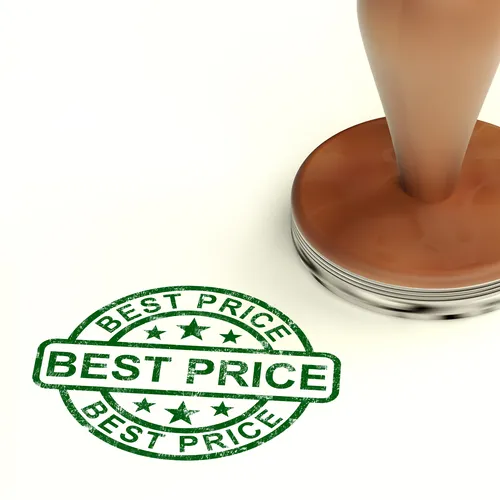
While selling your own home may not be a bad idea, it may be challenging to do everything yourself and meet deadlines without the services of a professional realtor.
Not only do you need to schedule tasks around other commitments but selling your home without a realtor could be costly if you make mistakes.
This article will discuss the benefits and disadvantages of both options.
If you are looking to sell your home in Florida without the help of a realtor, there are different methods you can choose from. If you are not in the market for a full-service realtor, you can use flat fee MLS or FSBO (for sale by owner) services. However, in order to use certain resources, you’ll need the proper licenses if you’re not going to use any of those other services. This piece will teach you about selling your home in Florida without a realtor, pricing strategy, commissions charged by real estate agents, and the importance of a real estate attorney. In addition, you'll discover how to avoid common mistakes when selling a home. Ultimately, the decision is yours though.
According to most realtors, in Florida, the real estate market will remain a seller's market in 2022.
With a lack of inventory and strong buyer demand, houses quickly go under contract.
The shortage of housing continues to drive up prices, but this may slow down or even reverse in the next few years.
So, while selling your home by owner may appear to be an easy option, it is not without pros and cons.
One pro to selling your house by yourself is the potential to save money on commission fees.
Typically, a real estate agent will charge you a commission of about five to six percent of the sales price.
With a median home value of $273,094 and the average commission range of 5 to 6%, it can cost $13,654 and up.
Without an agent, you won’t pay any realtor commissions or fees.
However, you can retain the services of a flat fee MLS company.
Then you will only pay a one-time fee between $200 and $400 for listing your home on the MLS.
So, using a flat fee MLS service can be a viable & more economical option for someone selling their house on their own.
Another pro of selling your home by yourself in Florida is that you will have more control over the sale.
But you will also have to do all or most of the work yourself.
FSBOs are not for everyone.
For the most successful outcome, you must be prepared to devote a lot of time and effort to it.
So, while selling your home by yourself in Florida without a real estate agent is an attractive option for many, it is crucial to consider the disadvantages as well.
First, you will have to learn & fill out a lot of paperwork.
This includes any marketing contracts, the purchase & sale agreement, disclosure documents, and all other closing papers that may be required.
So, if you don’t have a real estate agent or attorney representing you, you should understand all of these documents before signing anything.
Another con of selling your home by yourself is that you will have to deal with a steep learning curve.
Now, most real estate agents and investors have been at this for a while and are professionals when it comes to this, but you will not have as much time to learn.
You will also want to qualify potential buyers and since you probably have limited experience & you will be presenting your home to strangers you will have to make sure that they have the necessary qualifications to purchase your home, or a lot of closings could fall apart.
So, depending on how fast you catch on, the size of your bankroll, and the number of bills you have, if you do not sell your home quickly, you may be forced to accept a lower offer or hire an agent if doing it yourself doesn’t work out.

There are several factors to consider when setting a price for your home.
The season in which you plan to sell your home can affect the pricing strategy you use.
During the peak season, you may want to list your home at a higher price since there will usually be more buyers.
On the other hand, the slow season may warrant a lower price to account for less competition for the available homes.
So, as I mentioned in an earlier article, one of the most appropriate times to list a home in Florida is in June.
This is because sales prices are typically higher in June.
June also appears to be the fastest-selling month; a home may close four weeks faster than average.
However, strange as it may seem, one of the worst months to sell a home in Florida is July, when homes can linger on the market for three months and tend to sell lower than average.
Now, this may be obvious, but the amount you ask for your home should always account for the remaining mortgage, provide there is one.
As well as, considering all the closing costs and any profit that you want to make.
It is crucial not to confuse the asking price for your home with the home's value.
Now, with the recent housing market, listing your home in MLS at the highest possible price would have probably paid off, but in normal or down markets this rarely produces the desired results.
Finally, the most important aspect of pricing your home is either doing a correct comparative market analysis yourself or getting an appraisal.
A real estate agent's commission is a particular percentage of the sale price.
This percentage may differ for every agent.
You should always consider how much commissions real estate agents charge for their services if you’re considering selling your Florida home via an agent.
Typically, a home seller pays a real estate agent 5 to 6% of the sale price, split equally between the listing and buyer's agents.
The commission amount may be higher or lower than this, depending on the experience of the listing agent and their conversion rate.
You should try to negotiate the commission with the agent.
While as mentioned earlier, even though the average Florida real estate agent commission is 5 to 6%, it is possible to discuss this amount to see if they’re willing to lower it.
Remember that commissions are negotiable, and you should always come to an agreement before signing any contracts.
Also, you can always hire a discount brokerage if you have a smaller budget.
Discount brokerages can charge as little as 1% for listing a property, which is considerably less than the typical Florida listing fee.
Although, all discount brokerages may not offer the same level of service as each other or traditional agents.
So, always be sure to perform your due diligence.

Whether selling your home outright or purchasing a new home, hiring a real estate attorney can be a wise move.
In Florida, attorneys are not required, but you may want one to protect your specific interests.
They can review the closing documents and offer legal advice based on your needs.
While a cash purchase basically involves only the buyer and seller's interests, a financed purchase adds a third party, a layer of complexity, and additional risk for the seller.
A Florida real estate attorney can be invaluable when it comes to things like the initial purchase contract, as well as in all other areas.
A lawyer can ensure that the contract follows state laws and that you avoid making a critical mistake that delays the closing, snags the loan funding process, or even causes the purchase to fall through.
Florida real estate attorneys are familiar with current forms and can work with both the buyer and seller to ensure a smooth closing.
Real estate attorneys in Florida can also assist you in every other legal aspect of your transaction.
Whether you're a brand-new seller or this is your second or third time, you may be wondering if you need a realtor to sell your home in Florida. While it's not mandatory, hiring a realtor or an attorney can be beneficial if you're unsure of contracts' laws or the home selling process as a whole. The realtor commissions & the legal costs associated with a real estate attorney can vary greatly, but both can be very beneficial if you want to make sure nothing goes wrong with the transaction. Now, just know, if you do want to sell your home yourself that you'll need to learn some things, like how to do a comparative market analysis. You’ll also need to complete pre-listing & ongoing paperwork, such as marketing documents, disclosure forms, and a purchase & sale agreement.